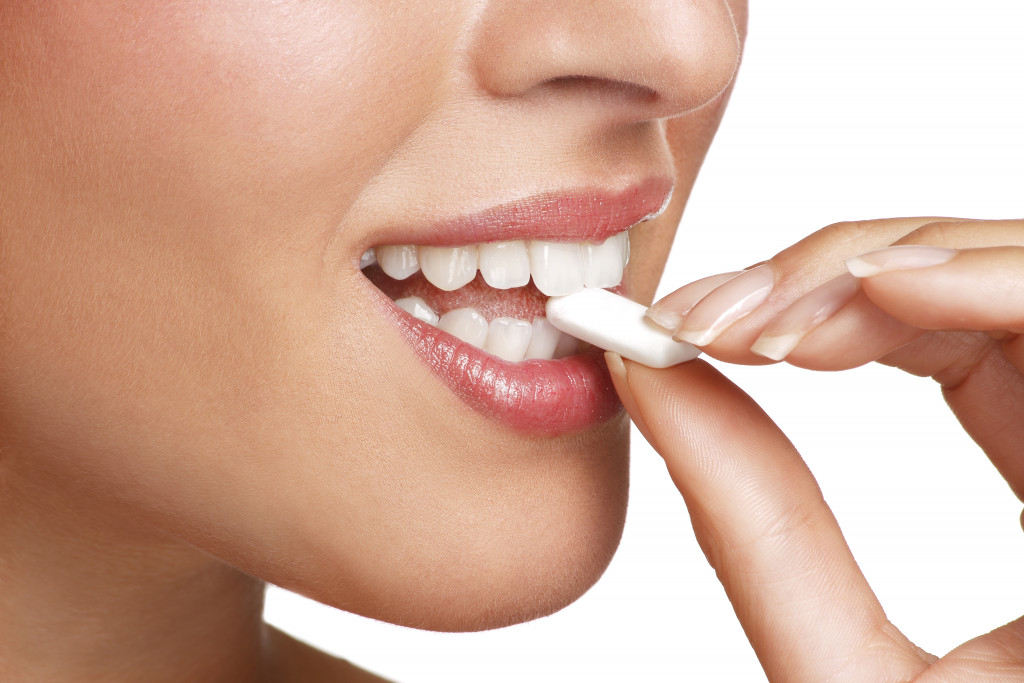People resort to chewing gum for instant good breath or refresher. Depending on the kind of gum they choose, it would either help or break their teeth and other aspects of health. Generally, sugar-free, xylitol chewing gums prove to be the healthiest for the teeth.
Chewing Gum and Dental Health
Any sugared chewing gum, when taken regularly, may only increase your risk for plaque buildup and tooth decay. The sugar invites bacteria to your mouth, leading to enamel decay and dental caries overall.
There are many other kinds of alternative sweeteners, including aspartame, sorbitol, maltitol, saccharin, and more, but many studies show that the healthiest among them is xylitol. Xylitol, whether on chewing gum or other products, is found to be a promising ingredient for minimizing dental diseases.
This is because Xylitol can reduce your mouth’s production of mutans streptococci (MS), the latter being less able to stick to the surface of the teeth and minimize their production of acids. Generally, it’s the safest and healthiest for the teeth, even made as gummy bears, syrups, mouth rinse, dentifrice, and more.
However, when taken occasionally, sugary chewing gums may not do much damage to the teeth. It’s good to nibble on after eating strong-smelling foods like onion, garlic, and spices, especially when you are somewhere you can’t brush or floss your teeth. Chewing gums can immediately mask bad breath, although they shouldn’t be used as oral hygiene replacement.
If you have a dry mouth, you can greatly benefit from chewing gums as it can stimulate saliva production, which can help wash acids, food particles, and harmful sugars away as well as reduce other symptoms such as discomfort in speaking, eating, and swallowing. And since the saliva naturally contains calcium and phosphate, it can strengthen the teeth’s enamel, too.
Chewing gum is believed to whiten the teeth too, especially if you choose those that are designed to whiten the teeth. Many kinds of foods can discolor the teeth from red wine, coffee, to ketchup. With saliva production and whitening ingredients, the teeth are coated and protected from further staining.
As much as possible, chew gums for not more than 20 minutes, which is enough to give your teeth a health boost. Your trusted dentist will agree that chewing more than that can result in jaw strain. Constant, excessive motion of the joints and cartilage in the mouth can worsen jaw pain or temporomandibular joint disorder (TMJD).
Consume Chewing Gums Moderately
It’s important to note that not all gums provide the perks. Those with artificial sweeteners such as mannitol and sorbitol, with their laxative effects, can cause you diarrhea. Most chewing gums include titanium dioxide which can mess with digestion.
Excessive consumption of artificial sweeteners, even xylitol, can cause gas, cramps, and bloating, the result of merely chewing, swallowing excess air, and without digesting any food. It’s best to chew gums moderately to prevent irritable bowel syndrome (IBS) and even chronic diarrhea.
Chewing Gum and Its Other Benefits

When consumed moderately, chewing gums can be good for your dental health and tolerable for your gut. However, the benefits of chewing gum don’t just stop there. Here are some other benefits of chewing gum:
Helps you lose weight
Sugar-free gum, although with alternative sweeteners, can help you with weight control in many ways. It can be a great way to reduce your hunger, cravings, and make you feel fuller. This means you consume fewer calories, especially if you chew one in between your meals.
Some research shows that chewing gum can help with burning a few calories, especially when you’re walking since your heart rate and walking speed while chewing increases too, which then leads to the burning of fats and calories.
Eliminates nausea
When you’re experiencing nausea or an upset stomach out of motion or morning sickness, usually, you’d take ginger or mint, both of which are available in the form of chewing gums. Chewing mint or ginger gums can greatly help with nausea.
Reduces heartburn
Chewing gum after a meal can decrease the acid levels in your esophagus; hence, reducing heartburn and acid reflux.
Relieves sleepiness
Mint gums, in particular, can be very effective at fighting drowsiness since they can stimulate blood flow to the brain, so if you want to stay up for work and the coffee isn’t kicking in, get some help from mint gums.
Enhances memory
With chewing gum enhancing blood flow, it’s also linked to improving short-term memory; just make sure not to chew too much.
Chew a Piece But Not Too Much
Anything good, when taken excessively, can lead you to harm. Make sure to chew a piece not more than twenty minutes anytime you consume one.





